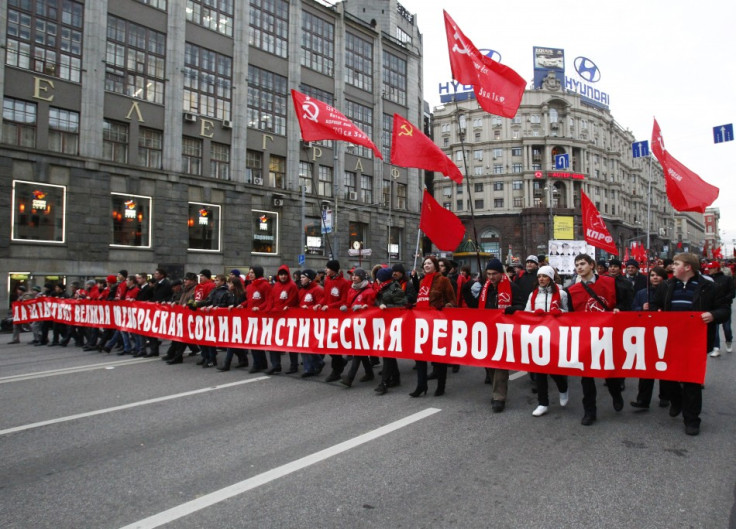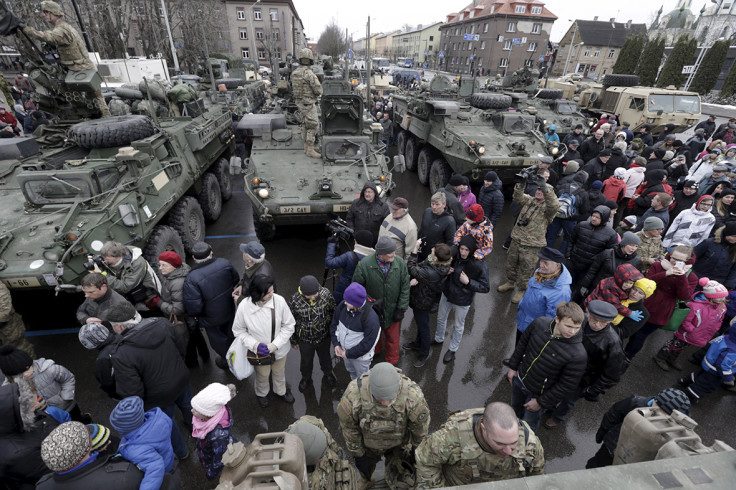Ukraine's Communism ban will fuel Nazi propaganda and far-right support

"Where are you from, ragazza?", asked the taxi driver who brought me to the airport from the Italian city of Bologna.
"Ukraine", I said loudly.
"Bene, Ukraine. We hear a lot about Ukraine now", he said as his dark eyes, beautified by long eyebrows, looked at me through the mirror.
"Yes, it is a hard time for Ukrainian people now", I answered looking at those eyes, being sure that their owner would be sharing my anti-Putin point of view.
"Yes, the Nazis are everywhere in Ukraine, even in Parliament," declared my Italian friend, out of nowhere.
The conversation was long, and its end does not matter much to my readers. What matters is that me, the proud and convinced supporter of Maidan and all of the recent changes that happened in Ukrainian politics, had a few uncomfortable moments as I was defending my truth in front of an Italian taxi driver fed by Russian anti-Ukraine propaganda, which, I realised, had also been shared by the Italian press.
These embarrassing feelings were exacerbated by the recent news I read from Ukraine just before having the debate with the talkative, politically engaged Italian driver.

News outlets were reporting that the Ukrainian minister of justice Pavlo Petrenko had announced the preparation of a new bill to forbid "Communist ideology" in Ukraine, as part of the process of "de-communisation" of the country that had been enunciated a few months previously in Kiev.
The minister's statement was followed by explanations of the initiative on governmental portals. The purpose was "to condemn the Communist and Nazi totalitarian regimes in Ukraine, to prohibit their propaganda and declassify the archives of the repressive communist authorities".
Such a declaration does not only hurt my Marxist roots, an offence that I am easily ready to forgive, but makes it simply impossible to defend the changes in Ukrainian power by claiming that they will bring democracy and freedom of expression in a country occupied by the hungry Russian bear Putin.
It is a high level of hypocrisy to scream from Maidan about the holiness of democracy, which Ukrainians are so eager to finally experience, while at the same time carry out something so anti-democratic as to forbid a political ideology, instead of punishing politicians directly for their criminal acts. However, what first appears a hardly understandable political manoeuvre has its goals.
The invisible enemy
I suspect that in a time of war, political and economic instability, while concrete peace is not possible and the price of food has risen by 53% (according to by Pravda.com.ua), primitive patriotism can become a tool for some in power to keep the population busy with something other than their own government. There is a need to offer the population this invisible enemy of the nation to fight and to direct your anger.
It seems to me that the "ghost of Communism" is providing this mission to some Ukrainian politicians today. They, including the minister Petrenko, believe that to protect their policies, they have to use history, as they know that history is often just a raw material for creating new political ideologies to serve new regimes.
The objectively negative and even violent reputation that Communism has from the history of the Soviet Union and the easy association to the dictatorship of Stalin therefore becomes a powerful instrument in today's ideological fight between Ukraine and Russia. Putin's propaganda naming every Ukrainian politician including president Poroshenko a "Bandera", a famous Ukrainian nationalist leader, is ridiculous, but the Ukrainian attempt to name every Russian a Communist directly associated to Stalin is equally so. In fact, they are trying to replace the Ukrainians' hopelessness with an epidemic of anger.
'The objectively negative and even violent reputation that Communism has from the history of the Soviet Union and the easy association to the dictatorship of Stalin is a powerful instrument in today's ideological fight between Ukraine and Russia.'
If some of you still see no contradiction in promoting democracy and forbidding communist ideology since communists in Soviet Union did a lot of harm, let me tell you that such a choice would be simply mistaken and furthermore, dangerous. To recognise the harm of a dictatorial regime under the flag or slogan of one or another ideology is a duty for any democratic power. However, to forbid an ideology by itself such as communism that has never included any hatred, call for violence or denied a nation's right to independence, creates nothing more than an ideological dictatorship.
Moreover, this attempt to forbid communist ideology in Ukraine is an extreme political act that was followed by a clear example of the ideological bankruptcy of the Ukrainian Prime Minister Yatsenuk, whom is already facing corruption charges. The prime minister himself called for the Parliament to adopt these laws and ban both the Communist and Nazi ideologies, as they are, by his own words, "ideologies against humanity".
I will not waste your time by analysing the origins of the ideas behind such a statement or comment on the intellectual potential of this statement, but instead I want to point out its dangers.
Suppressing Communism, in this case, opens a space for the far-right groups, such as the still very small and weak Pravuy Sector [or Right Sector], which in this context, could easily try to build power and raise their popularity.
Furthermore, all these low-level attempts to deal with the war situation are serving the Russian anti-Ukrainian propaganda and creating bigger opportunities to share lies about the "Nazis in Ukrainian parliament" that are even reaching an Italian taxi driver in Bologna and are hurting every Ukrainian whom suffers today, minimising the chances of getting the international support and understanding that is so much needed.
© Copyright IBTimes 2025. All rights reserved.






















